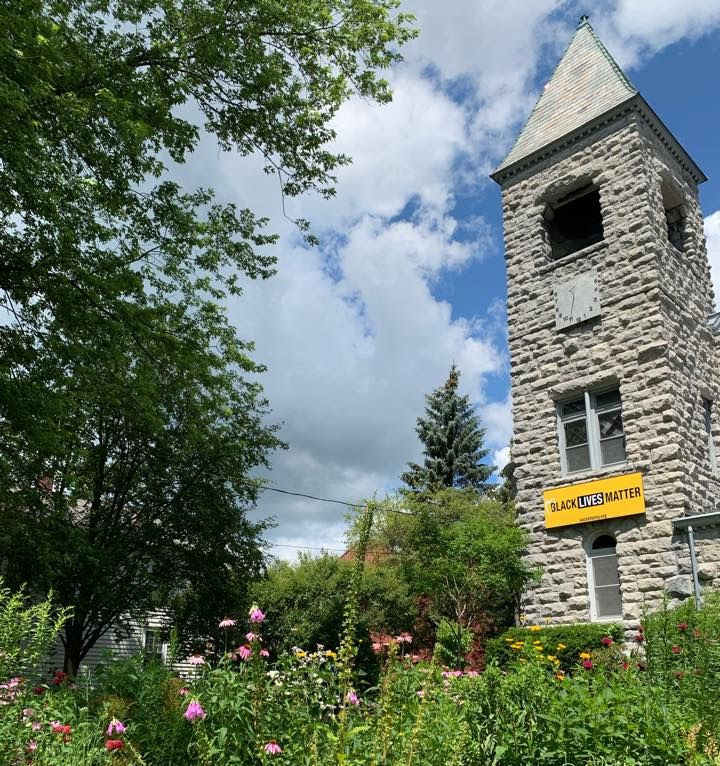Saturdays, November 2 and 9 from 10a.m. until 12p.m.
Kim Bouchard and Kathy Montan will present a 2-part exploration of Core Shamanism at church as part of the World Spiritual Practices Project Grant (WiSPP).
Part 1 will be on Saturday, November 2 from 10a.m.-12p.m. This will include the history of Shamanism as a world wide spiritual practice and also how it is being used today. There will be an opportunity for participants to experience the Classic Shamanic Journey.
Part 2 will be on Saturday, November 9, also from 10a.m. – 12 p.m. This class will be an exploration of Classic Shamanic Healing Methods. It will be part lecture and part demonstration. Participants will have another chance to experience the Classic Shamanic Journey. It is recommended that participants attend both classes, but especially Part 1 in order to have adequate background information. Please bring a pen and paper for note-taking.
We are limiting the class size to 25 people so please register in advance here.
Want to know more? Read the full press release below:
CANTON – The Unitarian Universalist Church of Canton serving the North Country community will host a two-part workshop on Core Shamanism, shamanic healing, and practical applications of shamanism in daily life. The workshop is offered as part of the year-long World Spiritual Practices Project (WiSPP). Part one of the workshop is Saturday, November 2, 10 a.m. – 12 p.m. and part two is Saturday, November 9, 10 a.m. – 12 p.m. It is recommended that participants attend both workshops to have adequate background information. To register: https://forms.gle/DuiFAsjCSc3RWr6L9.
According to Michael Harner, Founder of the Foundation of Shamanic Studies and author of The Way of the Shaman and Cave and Cosmos, “Shamanism is not ‘New Age’, it is Stone Age and has been living ever since.”
Shamanism is tens of thousands of years old and practiced on every inhabited continent. Present day masters of Core Shamanism are part of this ancient lineage. Core Shaman practitioners honor Indigenous wisdom and learn universal shamanic methods, engage with helping spirits, and enact core practices in a contemporary context to gain knowledge and the power to heal.
The workshop will be led by UU Church of Canton members, Kim Bouchard and Kathy Montan. When asked about Shamanic practice as a healing experience Montan said, “This is a practice of direct revelation and learning where each person builds relationships with their allies and receives guidance directly.”
Part one of the workshop will explore the history of Shamanism as a worldwide spiritual practice and how the practice is being used today. There will be an opportunity for participants to experience the classic Shamanic journey. Part 2 will be an exploration of classic Shamanic healing methods. It will be part lecture and part demonstration. Participants will have an opportunity to experience healing hymns (algyshtar) songs of praise, journeys and blessing and Tuvan drumming as part of the classic Shamanic journey.
When asked about the spiritual practice of Core Shamanism Bouchard said, “The four pillars of Shamanism include nurturing the body, mind, spirit, and soul. Shamanism is an ancient spiritual practice that has been revered for centuries, offering guidance and healing to individuals seeking a deeper connection with themselves and the world around them.” She added, “We’ll explore techniques that can help each of us cultivate balance, harmony, and well-being in our lives.”
Unitarian Universalists (UU’s) maintain a pluralistic faith grounded in love and activated within a “living tradition” of wisdom and spirituality, and draw from sources as diverse as science, poetry, scripture, and personal experience,” said Rev. James Galasinski, minister of the church.” He added, “These diverse perspectives inspire us in our ethical and spiritual life.”
To register for the two-part Core Shamanismworkshop, visit: https://forms.gle/fDw5nVWGh3A31JYe6
The program is free of charge and has a capacity of 25 participants. The workshop will be hosted in the religious education space. Participants should wear comfortable clothing and bring a journal for notes and writing.

